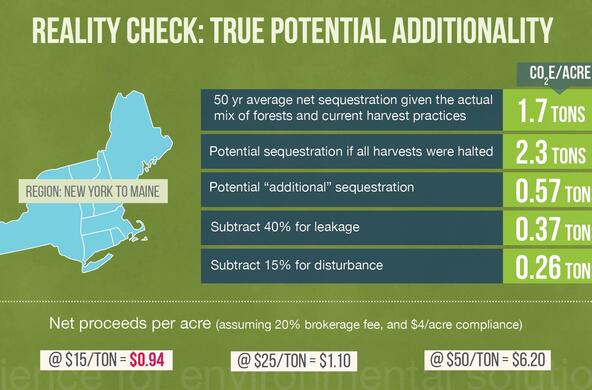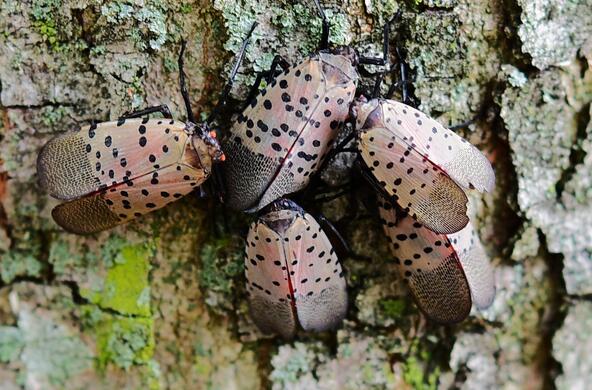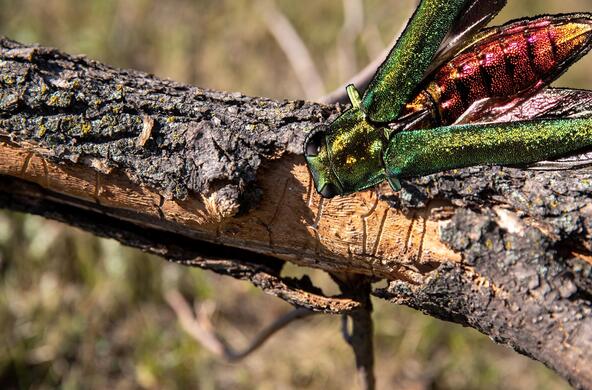Forests are the fabric of New England, fabric that is being increasingly shredded by invasive pests and pathogens, as 47 species of non-native tree-eating insects are known in New Hampshire alone. The emerald ash borer, a beetle native to Asia, is presently established around Concord, N.H., and can be expected to eliminate ash trees from most of New England within a decade. Once new invasives are established, there is often little that forest managers or property owners can do to limit impacts. The pathway for protecting our forests is to prevent the next emerald ash borer from colonizing North America by strengthening policies that tackle pest introduction and prevention, according to an open access paper published this month in the print issue of Ecological Applications.
Co-authored by a team of 16 scientists from 11 institutions, including Harvard Forest, the USDA Forest Service, The Nature Conservancy, and Dartmouth College, the paper summarizes the extensive impacts of non-native forest pests in the U.S. The team was led by Gary Lovett, a forest ecologist at the Cary Institute for Ecosystem Studies, who is leading an alliance of scientists promoting Tree-SMART Trade.
The paper provides the scientific rationale for why invasives so frequently become highly damaging to forests, identifies the prominent pathways by which nonnative pests enter U.S. ports and predicts that the influx will continue given present practices. The analysis includes specific recommendations for preventing the next high impact invasion:
- Switch away from solid wood packaging, as more than 90 percent of wood boring insects have recently invaded the U.S. through this material
- Minimize new pest outbreaks by expanding early detection and rapid response programs
- Augment international pest prevention programs with key trade partners
- Restrict imports of live woody plants, as historically, more than 70 percent of forest pests entered the U.S. through this source
- Tighten enforcement on non-compliant transport
"Biological invasions are rocking the planet" said Matthew Ayres, professor of biological sciences at Dartmouth and a co-author of the paper. "For example, New England forests now harbor more than 50 species of invasive insects; some are tree-killers that are changing our forests forever. The enormous costs of invasive pests typically fall on land owners and local governments that cannot afford it. We need to become better – fast – at stopping human-aided transport of organisms among continents."
"The strategies proposed by this working group are simple, sensible, and practical (e.g., eliminate solid wood packing material – the platform for introduction of emerald ash borer among many others – from international commerce). By implementing these strategies, we can make rapid gains in environmental security, which are not only cost effective but will also have broad benefits for the citizens of North America. However, success will require the engagement of voters, land-owners and forest-enjoyers of all kinds. I hope that anyone who is interested in protecting our forests will contact their representatives in Washington, D.C., and ask them what they are doing to prevent the next emerald ash borer," said Ayres.






